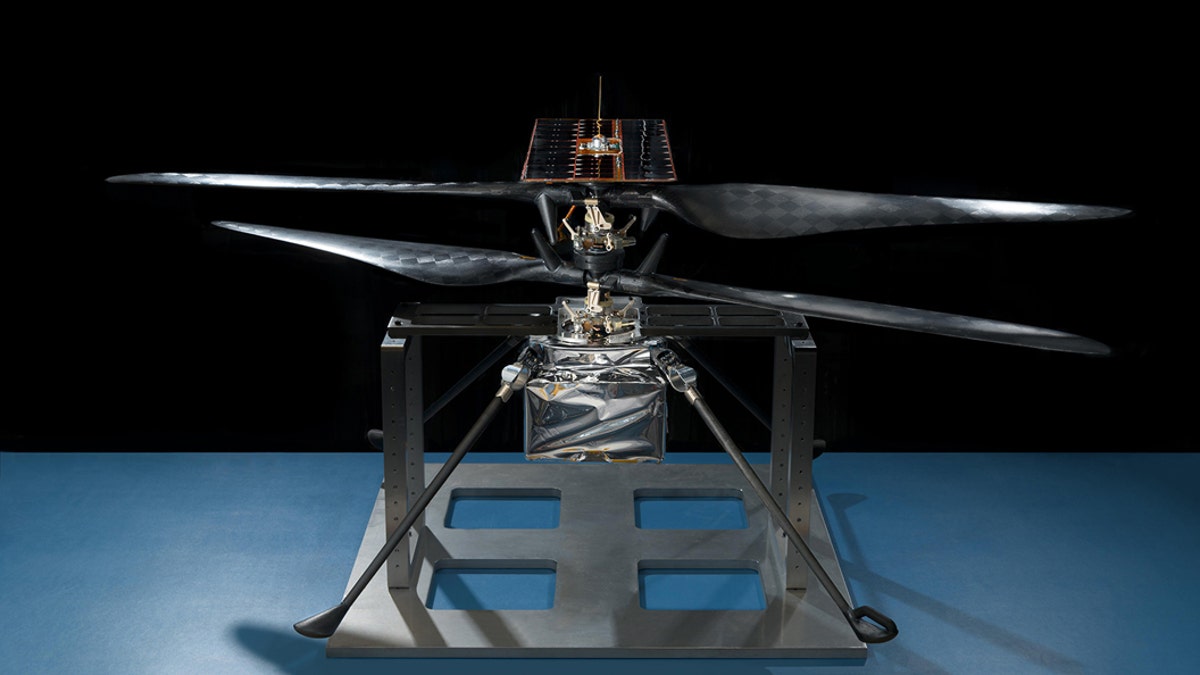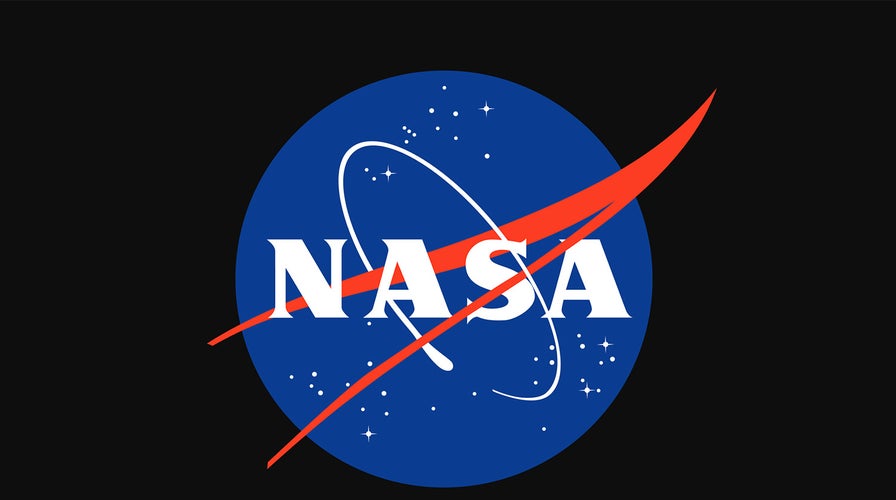Fox News Flash top headlines for Jan. 3
Fox News Flash top headlines for Jan. 3 are here. Check out what's clicking on Foxnews.com
2019 was a banner year for NASA, as the space agency announced plans to return to the Moon, celebrated the first-ever all-female spacewalk and commemorated the 50th anniversary of Apollo 11. 2020 appears to be just as, if not more action-packed, with a new rover headed to Mars, the continued preparation for the 2024 return to the Moon and a host of other projects.
"In 2020, NASA will be taking long strides toward returning astronauts to the Moon, continuing the exploration of Mars and developing new technology to make supersonic aircraft fly more quietly," the space agency wrote in a post on its website. In addition, NASA produced a video providing further details of what these projects and missions will require.
Perhaps the biggest mission is the launching of American astronauts into space from American soil. Since the space shuttle's last mission in 2011, NASA astronauts have traveled to and from the International Space Station via Kazakhstan, courtesy of the Russian Space Agency, costing the space agency $86 million per ride.
APOLLO 11'S MICHAEL COLLINS REFLECTS ON HISTORIC MOON LANDING: 'WE WERE JUST REGULAR ASTRONAUTS'
Despite some hiccups with Boeing's unmanned Starliner test last month, NASA is confident that Boeing, as well as SpaceX, will be able to put astronauts into space from American soil. "Commercial spacecraft and rockets already are delivering cargo to the space station, with more supply flights this year, and crew vehicles are will undergo their final tests," the agency wrote.
Mars 2020 rover
The Mars 2020 rover (which will be renamed prior to launch) is slated to join the still functioning Curiosity rover and the now-deceased Opportunity rover on the Red Planet.
Unlike Curiosity or Opportunity before it, this rover will carry the "first helicopter that will fly on another planet," NASA added.

NASA's Mars Helicopter, a small, autonomous rotorcraft, will travel with the agency's Mars 2020 rover, currently scheduled to launch in July 2020, to demonstrate the viability and potential of heavier-than-air vehicles on the Red Planet. Credits: NASA/JPL-Caltech
The Mars 2020 rover, which is slated to launch July 17, will attempt to detect if there is any fossilized evidence of extraterrestrial beings, in addition to other tasks. In 2019, Curiosity detected oxygen that "behaves in a way that so far scientists cannot explain."
Several months prior to that, the rover also detected an "unusually high" level of methane on Mars. On Earth, methane is produced both biologically and geologically, although it is not clear what caused the methane spike on Mars.
NASA: ANCIENT MARS OASIS COULD HAVE SUPPORTED LIFE
Asteroid samples
NASA's OSIRIS-Rex spacecraft, which reached the asteroid Bennu in late 2018, will touch down on the space rock in August and collect samples. From there, it will depart Bennu in 2021 and is scheduled to return to Earth in September 2023, according to NASA.
Supersonic aircraft
NASA has been testing X-planes, experimental aircraft that it uses to test a variety of different technologies, for more than 70 years, and 2020 will see the continued development of its supersonic X-59, which could revolutionize air travel.
In December, NASA announced that the final assembly of the X-59 Quiet SuperSonic Technology (QueSST) had been approved. The decision, known as Key Decision Point-D (KDP-D), was the last hurdle before the QueSST aircraft is cleared to make its first flight in 2021.
The plane, designed and put together by Lockheed Martin, has a long, pointed nose and is built so that the sonic boom sound is reduced to a "gentle thump" or possibly no sound at all, NASA added. The new plane's sound when passing by will register around 75 Perceived Level decibel, much lower than a Sonic boom, which comes in at 90.
NASA IS READY TO TEST ITS FIRST ALL-ELECTRIC EXPERIMENTAL X-PLANE: 'A SIGNIFICANT EVENT'
The government agency said that "it will be flown above select U.S. communities to generate data from sensors and people on the ground in order to gauge public perception," as well as help establish new rules for commercial supersonic air travel. Supersonic passenger flights have been banned over land since the early 1970s because of the boom.
"2020 promises developments on many fronts as we continue to lead the world in exploration and inspire the next generation," NASA added on its website.
Hubble anniversary
The Hubble space telescope will mark its 30th anniversary in April. The orbiting telescope was launched aboard the Space Shuttle Discovery in 1990 and NASA notes that Hubble telescope was required to last 15 years, but has been in operation for almost double that time.
CLICK HERE TO GET THE FOX NEWS APP
NASA partners with the European Space Agency on the telescope which is managed from NASA's Goddard Space Flight Center in Greenbelt, Maryland.
Fox News’ James Rogers and Zoe Szathmary contributed to this article.









































